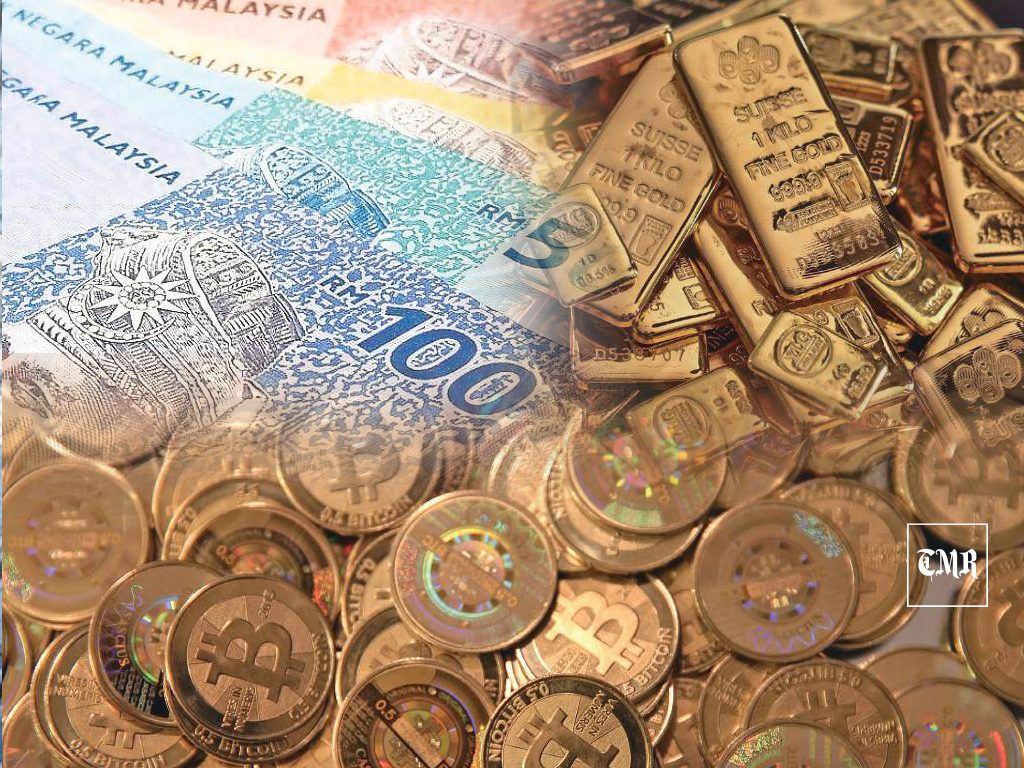
Malaysian bonds and sukuk are starting to look more attractive, especially to global investors seeking refuge from US market turbulence
by AUFA MARDHIAH
MALAYSIAN investors are rethinking their portfolios and wealth strategies as uncertainty over US tariffs deepens, prompting a pivot towards defensive sectors, increased cash holdings and safer investment instruments.
The recent imposition of a 24% tariff on Malaysian goods by the US — part of a broader protectionist shift — has introduced fresh volatility into the market.
While the move is aimed at recalibrating trade flows under Washington’s new economic agenda, it has also raised questions about portfolio resilience, sector exposure and capital outflows from emerging markets.
Areca Capital Sdn Bhd CEO Danny Wong said many investors had already repositioned defensively even before the latest developments.
He observed that while uncertainty remains over the long-term impact of US tariffs, some investors are now selectively buying into sectors that have been oversold due to the tariffs, particularly exporters and domestic-driven sectors such as banking.
There has also been growing interest in diversifying away from equities.
“There is visible rotation from equities into alternatives such as gold and bitcoin. Bonds are also seeing some inflows as investors rebalance their portfolios in response to the uncertainty,” he told The Malaysian Reserve (TMR).

Domestically, sectors such as iron and steel, and construction are expected to hold up due to continued consumer demand and investment
Retail Investors Turn to Long-term Safety Nets
For retail investors, the advice is to stay grounded and avoid speculative moves. Tradeview Capital Sdn Bhd CEO Ng Zhu Hann stressed that while markets have rebounded strongly in recent weeks, volatility under the Trump administration will persist.
“When it is so volatile, what happens is that the investors cannot be taking speculative short-term trading positions,” he said.
He believes the best strategy is to accumulate quality names and hold through market cycles.
“Each time when the market dips, they buy and they hold — until this whole situation blows over under this market uncertainty.”

Ng says the best strategy is to accumulate quality names and hold through market cycles (Source: Tradeview Capital)
Ng also recommended that retail investors rebalance their portfolios by selling on strength, locking in gains and increasing their cash holdings to between 30% and 40%, which he considers a healthy level.
On safer instruments, Ng noted that while gold remains a traditional safe haven, it may be over-bought at current levels.
He also dismissed cryptocurrencies outright, calling them too speculative, and advised them to avoid peer-to-peer lending due to increasing defaults.
Unit trusts and equity funds, however, are still acceptable, especially for long-term investors.
Caution Rises over Global Financial Shocks
From a macroeconomic lens, Sunway University economist Prof Dr Yeah Kim Leng said the real concern lies not only in reduced trade demand, but in financial market shocks that could ripple into Malaysian portfolios.
He also noted that there will likely be a major correction in US stock markets, pointing to high debt levels, sticky inflation and interest rate rigidity as contributing factors.
“A large part of institutional portfolios still have huge exposure to US stocks and bonds, including treasuries,” Yeah added.
Institutions with high US exposure, especially in equities and treasuries, are particularly vulnerable.

Despite external risks, Yeah believes Malaysia’s financial system remains robust
Malaysia Still Seen as Resilient
Despite external risks, Yeah believes Malaysia’s financial system remains robust.
“Our financial system held up very well during the 2008 global financial crisis and the 2020 Covid-19 shock. Now it remains even better capitalised, and asset quality so far remains below 1.5%,” he said.
With a current account surplus and improving fiscal deficit, Malaysia retains fiscal space to respond to external shocks if needed. He believes that Malaysian sovereign credit rating will likely remain intact although he warned that any US credit downgrade could become a disruptive global event.
Amid the volatility, Malaysian bonds and sukuk are starting to look more attractive, especially to global investors seeking refuge from US market turbulence.
With rising volatility and weakening confidence in US assets, Yeah said investors may show greater interest in countries with strong economic fundamentals, with Malaysia likely to be among those on their radar.

According to Wong, there has also been growing interest in diversifying away from equities (Source: Areca Capital)
Ng echoed the sentiment, noting increased interest in inflation-hedged funds — though environmental, social and governance (ESG) funds remain a niche.
“A lot of people are more focused on inflation-hedged funds. Not so much ESG, because many still do not understand the concept or how it will help their portfolio,” he said. Moreover, with capital shifting away from the US and China, ASEAN is emerging as an alternative growth region.
“We are already benefitting. The trade investment diversion started during Trump’s first term,” Yeah said.
“The ‘China Plus One’ strategy has resulted in a reshoring from China to South-East Asia, with Malaysia and Vietnam among the biggest beneficiaries,” he added.
Meanwhile, Malaysian retail investors are still broadly cautious, but are starting to show interest in regional markets — though few have made large moves.
“The retail clients are still waiting and watching. Most are still Malaysia-focused for now,” said Ng.
As the global trade war shows no signs of cooling, Malaysian investors — both institutional and retail — are adjusting their strategies to navigate uncertainty.
Sectoral Shifts, Diversification Strategies On sector exposure, Yeah said Malaysia’s electronics and semiconductor industries may remain resilient, with some exemptions from US tariffs. Palm oil, which primarily serves Asian markets, is also unlikely to be significantly affected.
Vulnerable sectors include furniture — with 40% of exports going to the US — and gloves, though the latter could benefit from trade diversion from China.
Chemical and energy-related industries tied to global oil markets may also face uncertainty.
Domestically, sectors like banking, iron and steel, and construction are expected to hold up due to continued consumer demand and investment.
From rotating into bonds and defensive sectors, to raising cash buffers and avoiding high-risk instruments, the recalibration underscores a deeper shift towards preservation and long-term resilience in an increasingly fragmented world economy.
- This article first appeared in The Malaysian Reserve weekly print edition
The post Tariff tension drives investors to defensive play appeared first on The Malaysian Reserve.

